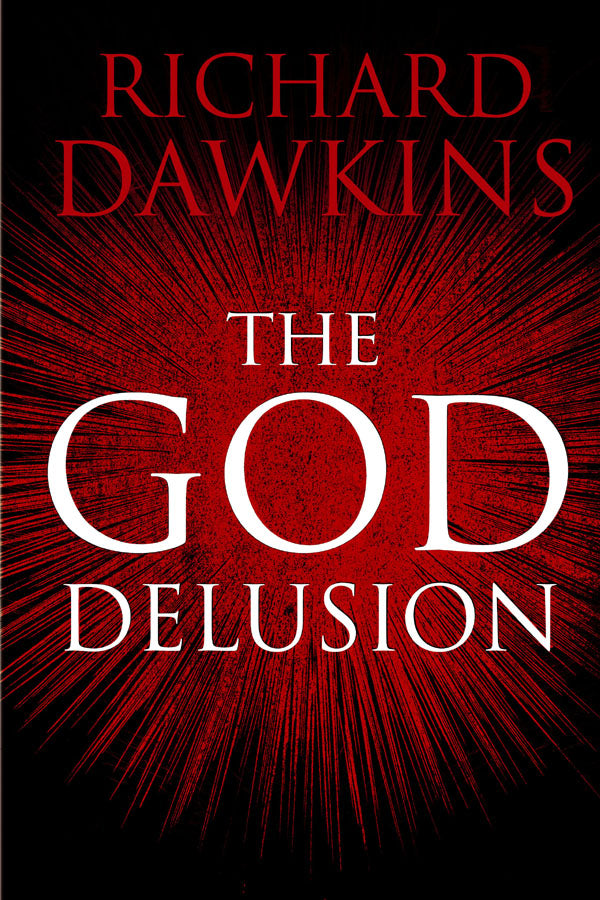A Skeptic's View of the God Delusion

I am a Skeptic. Well, at least I attend Skeptics meetings occasionally and I subscribe to the Australian Skeptic’s magazine. In The Skeptic, 26(4), Rob Hardy wrote ‘Against Belief ’”, which was a review of The God Delusion, by Richard Dawkins. Rob Hardy “highly recommended this book to anyone of any religious belief ”. Well, I read it.
I have also previously read The Blind Watchmaker. The two books have the same conclusion but use a different argument. On page 1 of The Blind Watchmaker Dawkins states, “Physics is the study of simple things that do not tempt us to invoke design”. For the remainder of the book he argues that neo-Darwinian evolution happens by random mutations and natural selection without recourse to design. He concludes that no design in biology means that there is no God.
In chapter 3 Dawkins describes his own ‘EVOLUTION’ computer program/ He starts with a dot, generates random lines, manually selects the survivors (to simulate natural selection) and demonstrates how he can evolve static shapes such as ants or spiders in about 40 steps. However, he seems blind to the fact that he unwittingly presented a good argument for theistic evolution. Was the computer a random piece of hardware or was it developed by intelligent beings? Was the program a random collection of bytes? Even so, how long will he need to run his program before it can generate animated figures, let alone living ones? The answer is “never”, because the program does not contain the necessary design or intelligence. The laws of physics are far smarter than his program.
In The God Delusion, Dawkins has changed his approach. He has become aware of the Anthropic Cosmological Principle or the ‘Goldilocks Effect’, i.e., the form of the laws of physics, the finetuning of their values and the initial conditions in the Big-Bang are all “just right” to support life and do indeed tempt us to invoke design.
However, Dawkins’ answer to Goldilocks is that Darwinism is so successful at closing God gaps that its principles can be extrapolated to cosmology. He believes that one day scientists will discover some principle that explains the fine-tuning. He provides no evidence. He suggests an infinite number of universes, but I am not sure how scientific or speculative this theory is (it is certainly not testable) and I suspect that Dawkins doesn’t know either. Dawkins’ confidence in the power of Darwinism is a belief statement. He does not have any evidence that Darwinism can be applied to cosmology and there is no logical reason for it. Also, it does not matter how much evidence you provide for design, he will not accept it because he has faith that it will be explained one day in the future. In The Blind Watchmaker his argument was that lack of design indicated no God. However, he does not accept the reverse argument. Thus, “Heads I win, tails you lose”.
Many things could be said about The God Delusion, but, for the sake of brevity, I will comment on one small section. I studied Dawkins’ points in more detail in the section on “The Argument from Scripture” (pp. 92-97). I won’t discuss his debatable assertions but only list some of his factual errors or misleading statements.

He argues that biblical scholarship has shown that the gospels are not reliable, but which ‘scholars’ does he quote? The only real scholar that he refers to is Bart Ehrman. The rest are populist authors. For example, he quotes A.N. Wilson and G.A. Wells. Wilson dropped out of his theology course after 1st year. G.A. Wells is a professor in German. Wilson and Wells are not biblical or historical scholars. They do not publish in relevant peer reviewed journals and their views deviate significantly from mainstream scholarship. I could easily quote populist writers that claim evolution is bollocks, but what would that prove?
urthermore, Dawkins even suggests that Jesus may not have existed based on Did Jesus Exist? (1986) by “Professor G.A.Wells of the University of London” (he omitted to mention that Wells was a professor in German). However, in pages 49 to 50 of Can We Trust the New Testament? (2004), Wells writes, “In my first books on Jesus, I argued that the gospel Jesus is an entirely mythical expansion of the Jesus of the early epistles. The summary of the argument of The Jesus Legend (1996) and The Jesus Myth (1999) given in this section of the present work makes it clear that I no longer maintain this position…” In other words, Dawkins quoted the view of an author who has since changed his mind.
Dawkins claims that the four gospels were arbitrarily selected for inclusion in the canon. However, the four gospels were written between 50 and 90 AD and were widely recognised as unique by the Christian community by the mid-second century, over 200 years before the canon was finalised. For example, in about 170 AD Justin Martyr wrote his Apologies and quotes extensively from the four gospels. At about the same time Tatian wrote the Diatessaron, which is a harmonisation of the four gospels. Both of these writings indicate that the four gospels were uniquely recognised as authoritative by that time.
The stories about weird miracles of Jesus when he was a child are not in the Gospel of Thomas (as Dawkins claims), but in the Infancy Gospel of Thomas. The Gospel of Thomas is an alleged collection of sayings of Jesus that was discovered at Nag Hammadi and was written sometime between 50 and 140 AD. The Infancy Gospel of Thomas is an entirely different book and was written near the end of the 2nd century, over 100 years after the canonical gospels.This is obvious to anyone who is familiar with the texts. Dawkins has obviously misinterpreted hearsay. To assert that the Infancy Gospel of Thomas has equivalent claim to historicity as the canonical gospels is absurd. Likewise, the other alternate gospels that he cites were written much later than the canonical gospels.
Dawkins suggests that there was only one source for biographical information on Jesus. In fact scholars have identified seven independent sources of historical information about Jesus underlying the New Testament books (Mark, (Q)uelle, M, L, Signs, Paul and James).
Dawkins states that Paul’s epistles mention almost none of the alleged facts of Jesus’ life. Paul’s letters were written early and five of the 13 Pauline epistles (Romans, 1 & 2 Corinthians, Galatians and 1 Thessalonians) are universally recognised by scholars as genuine writings of Paul. Many scholars believe he wrote all of them. His letters were written to encourage churches and thus they do not contain much direct historical narrative about Jesus. Paul only mentions the tip of the iceberg regarding historical information because of shared understanding with his readers. However, he does provide significant information. As this is mentioned incidentally, this increases its credibility, as Paul is not recording these statements for 21st century readers. Paul provides many incidental clues, including the earliest resurrection account and list of witnesses in 1 Cor 15. Paul’s writings also contain a well developed theology of Jesus’ humanity and divine nature, illustrating that this could not have been a later development.
Dawkins describes the issues surrounding the dating of the governorship of Quirinius and of the census related to Jesus’ estimated date of birth. The birth narratives are indeed in scholars’ eyes the least historically credible parts of the gospels. Most scholars believe that Luke got it wrong in this instance, although this is still not certain. However, Dawkins provides no indication of the number of times that Luke gets it right. Luke has left behind a large number of descriptions of people, places and events that can now be checked. In the overwhelming number of cases Luke has been shown to be correct. Hence in this case, Dawkins is faithful to scholarly opinion on the census issue, but he provides a misleading impression by being selective in his evidence.
Where there is smoke there is fire. Something happened in 1st century Palestine that requires an explanation. Real scholars scour all of the information sources to try and find out what actually happened. Dawkins’ approach is radically different. His agenda is to assert that it is a fairy tale, so he can ignore the evidence. At the end of this chapter, Dawkins dismisses the most scrutinised texts on the planet as fiction and decides not to consider the Bible as evidence for deity for the rest of the book. However, Dawkins’ small contribution on this subject contains numerous errors and flawed arguments. He is far less reliable than Luke. Shouldn’t the rest of The God Delusion be dismissed instead?
It would take a book to evaluate all of Dawkins’ arguments. Indeed, at least one already has been written (The Dawkins Delusion by Alistair McGrath). My general observations are that The God Delusion contains a lot of factual errors and uses evidence in a very selective and biased way. It is rhetoric rather than a balanced scholarly presentation. He is not interested in finding or communicating the truth. His only agenda is to throw mud and hope that some of it sticks. The God Delusion has very little science in it and the vast majority of the material is outside Dawkins’ area of expertise. On the other hand, The God Delusion is well-written and I found it an interesting read. At times he shows good grace. He bemoans biblical ignorance and acknowledges the contribution of the bible to our culture and language.
The God Delusion will please those who agree with him and I expect it will affect some people’s beliefs. However, I find it interesting that the Skeptics are so ready to provide uncritical affirmation. Two of the Skeptic’s core values are to test and to doubt, but that is a two-edged sword. Shouldn’t testing and doubting be applied to all views, whether you like them or not? Religious people are not the only ones who suffer from wishful thinking.
As for me, I remain deluded.
Even though there are many weaknesses in Dawkin’s book, it is important to engage with writers who are critical of our faith. Where he has raised an interesting argument, then these should be addressed.
I believe that Dawkins’ argument that God is improbable should addressed in a thorough manner rather the ‘Who made God?’ argument. Our faith’s enemies provide great opportunities for apologetic responses. Richard Dawkins has placed a number of issues on the table and has raised public interest. This provides us with an opportunity to be heard. We should study these issues so that we are “prepared to give a reason”. ©
E N D N O T E S
[1] This paper was published as a Forum article, substantially in its current form, in The Skeptic, 27(2).
Leave a comment
Comments will be approved before showing up.



